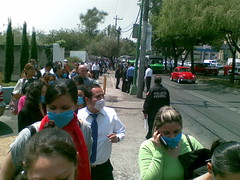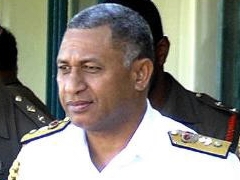 William M. LeoGrande’s article “Engaging Cuba: A Roadmap” appeared in the winter “Dear Mr. President” issue of World Policy Journal. His grade for the new administration’s first 100 days follows this update.
William M. LeoGrande’s article “Engaging Cuba: A Roadmap” appeared in the winter “Dear Mr. President” issue of World Policy Journal. His grade for the new administration’s first 100 days follows this update.
As the Fifth Summit of the Americas approached in April, President Barack Obama faced rising pressure from Latin American leaders to make good on his campaign promise to initiate a new policy of engagement with Cuba. Just before the heads of state convened in Trinidad, the White House announced an end to restrictions on Cuban-American remittances and travel for family visits.
These moves fulfilled the explicit campaign promise Obama made in Miami on May 23, 2008, but disappointed those who hoped the president would also rollback Bush-era restrictions on educational and cultural travel for all U.S. residents. By delaying a broader liberalization of travel, Obama left people-to-people engagement more hamstrung than it was under President Bill Clinton—hardly the sort of change in Cuba policy that Obama (as candidate) led everyone to expect.
The one innovation in the president’s first sally on Cuba was licensing U.S. telecommunications companies to provide cell phone, telephone, internet, satellite radio, and television service on the island—if the Cuban government will allow it. If Cuban President Raúl Castro accepts the offer, Obama can claim a policy success for reducing the communist government’s information monopoly, thereby justifying additional increments of change.
If the Cubans refuse, Obama can point to their lack of cooperation as a reason for doing little or nothing. During his pre-summit visit to Mexico, the president called his initiative “a show of good faith,” adding that he would now look “to see whether Cuba is also ready to change. We don’t expect them to change overnight. That would be unrealistic. But we do expect that Cuba will send signals that they’re interested in liberalizing.”
Raúl Castro responded at a pre-summit meeting in Venezuela, saying, “we have let the American government know both in private and in public,” that Cuba was willing to open a dialogue on all issues.
“Whenever they want to talk about them: human rights, the freedom of the press, political prisoners, everything, everything, everything they would like to talk about,” Castro said. “But on an equal footing with absolute respect for our sovereignty and for the right of the Cuban people to their self-determination.”
On the one hand, this sounded promising. Fidel Castro had always insisted that Cuba would never negotiate its internal politics with Washington, so Raúl’s explicit willingness to put human rights and democracy on the agenda seemed like a breakthrough. Secretary of State Hillary Clinton hailed Castro’s comments as “a very welcome gesture.”
But read in context, Raúl’s remarks were not quite so encouraging. Most of his speech recited in detail the history of U.S. aggression against Cuba. He ended with the proposal Cuba would free “the so-called dissidents and patriots” who were “on the U.S. payroll,” in exchange for release of the five “heroes”—five Cuban intelligence agents serving long sentences in federal prison. Fidel weighed in on April 22, in one of his written reflections, that Obama had “without a doubt misinterpreted Raúl’s statements,” implying that while Cuba might be willing to talk about a broad agenda, the government was still unwilling to concede anything on its domestic politics.
Obama’s Cuba initiative created a great media stir in the United States, with headlines proclaiming a fundamental change in Cuba policy when, in fact, the actual change was quite modest. The Obama team seemed to think their Cuba initiative would take the heat off the president at the Summit. They were wrong.
Heads of state across the region pointedly insisted that a new approach to Latin America ought to begin with an end to the embargo against Cuba, while Obama reiterated his commitment to “a new beginning” of engaging with Cuba “on a wide range of issues.” But even he seemed to recognize that the rest of the hemisphere didn’t regard merely liberalizing Cuban-American travel and remittances as much of a change.
Obama now faces a dilemma. The media hype surrounding the summit raised expectations that Obama will really break with the past and bring U.S. policy toward Cuba into the twenty-first century. Yet Obama keeps insisting that Cuba must make domestic political concessions—the issues on which the government is least likely to budge. The reverse is also true: Cuba offers to free political prisoners, but only if Washington releases the Cuban Five—the issue on which Obama is least likely to budge.
Washington and Havana are at risk of hitting an impasse before they even get started.
The limits to what is possible will not be known for certain until the two sides begin to talk directly and privately. Presumably, the next step is to open a dialogue, most likely at a relatively low diplomatic level, on the issues Obama himself mentioned at the close of the summit—migration, drug trafficking, and political issues. Progress on issues of mutual interest could come quickly thus building momentum for engaging tougher ones. But “we’re not going to change that policy overnight,” Obama said, trying to dampen expectations at the summit.
The Obama team appears to have decided to proceed cautiously on Cuba, taking small incremental steps, then pausing to take the political temperature at home while gauging Cuba’s response. Some progress can be made in this fashion and, to be fair, some already has been made. But such gradualism is hardly a new strategy; Presidents Jimmy Carter and Bill Clinton both tried it and neither could sustain the early momentum.
More importantly, Obama promised a fundamentally different approach toward Cuba—a policy of engagement rather than isolation and hostility. “We’ve been engaged in a failed policy with Cuba for the last 50 years,” Obama declared during the presidential campaign. “And we need to change it.”
So far, Obama has not lived up to his own rhetoric. He has yet to make a dramatic break with the policies of the past. In fact, his approach thus far has been less open than that of either Carter or Clinton. Bold in so many other areas of domestic and foreign policy, President Obama is in danger of getting stuck in the tangled morass of U.S.-Cuba relations. Ten presidents before him have tried in vain to untie this Gordian knot. Will Obama have the courage to just cut it?
For his first 100 days, he deserves a grade of…






 Since the religiously-rooted Justice and Development Party (AKP) came to power in Turkey in 2002, Islam and secularism have become particularly controversial topics.
Since the religiously-rooted Justice and Development Party (AKP) came to power in Turkey in 2002, Islam and secularism have become particularly controversial topics.
